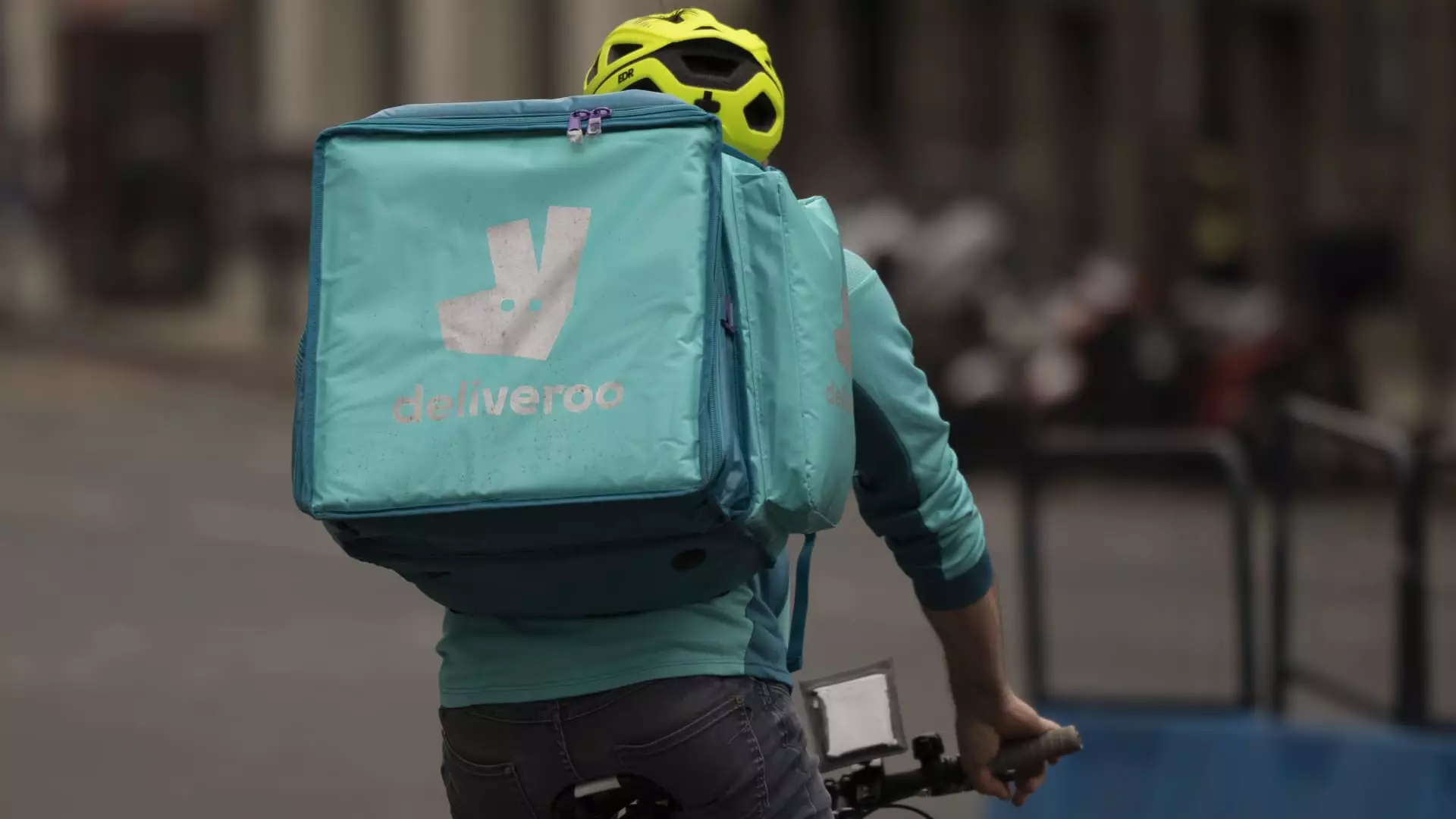In a game-changing move, British food delivery service Deliveroo has entered into an agreement with American competitor DoorDash, proposing a monumental takeover valued at £2.9 billion ($3.9 billion). While this merger may seem like a miracle for its stakeholders, the complex reality behind this acquisition reveals more grim realities for the food delivery sector at large. Deliveroo has had a rough go of it in the UK stock market; once heralded as a beacon of potential in tech, it now represents just how unpredictable and unforgiving the market can be.
Deliveroo operates on an app that satisfies hunger pangs and grocery woes alike, showcasing a model that emphasizes convenience. But the challenges it has faced since its public offering have raised questions about its viability, especially in a post-pandemic world. Investors, initially euphoric about the pandemic’s initial surge in delivery services, have shifted their perspectives, realizing that the robust growth of 2020 might be a temporary spike rather than a sustainable trajectory.
The Premium that Signals Trouble
The acquisition comes with a 44% premium of 180 pence per share compared to the last closing price prior to DoorDash’s offer. While this seemingly sweet deal is designed to entice shareholders, it also spotlight the troubling decline in Deliveroo’s value since its IPO. Just over two years ago, the company experienced one of the most disastrous debuts on the London Stock Exchange, with shares plummeting over 30% post-IPO. With its shares now down more than 50% from the pioneering mark of £3.90, this acquisition represents not just a lifeline, but an admission of failure by Deliveroo’s management.
This declining trend in shareholdings suggests not just a struggle for Deliveroo but a sign that perhaps the business model of gig economy corporations is under serious scrutiny. Investors now ask: can this business model — so reliant on gig workers — sustain itself amidst increasing legal concerns? The answer seems increasingly elusive, as both regulatory environments and consumer attitudes evolve.
DoorDash: A Calculated Expansion
For DoorDash, acquiring Deliveroo symbolizes an aggressive strategy to boost its international presence, complementing previous acquisition attempts like Finnish service Wolt. Interestingly, while DoorDash’s shares dipped shortly after the news broke, the overall aim remains to destabilize the European market and assert dominance. Such consolidation does not come without risks. DoorDash must court a wary public that is increasingly concerned about monopolistic tendencies and the erosion of choices available to consumers.
Tony Xu, CEO of DoorDash, expressed excitement about the synergies that could arise from this merger, foreseeing coverage in over 40 countries. While this reflects grand aspirations, one must wonder about the underlying costs — for consumers, for workers, and for the overall competitive landscape. Transformative acquisitions often lead not just to improved services but can also warp the fundamental dynamics of local economies.
Glimmers of Hope Amidst a Dark Landscape
Deliveroo’s tumultuous history illustrates a broader trend affecting the food delivery sector— consolidation. Countless reports have surfaced regarding companies like Just Eat entering into their own arrangements to stay afloat. The landscape has become littered with mergers and acquisitions as companies scramble to find solid ground in an uncertain future. It seems a survival-of-the-fittest scenario, but one that requires watching closely to ensure that consumer interests aren’t the collateral damage of aggressive corporate strategies.
The urgency behind such acquisitions highlights a troubling trend in the food delivery market where demands can outweigh the practicalities. As consumers look for more than just speedy service — focusing instead on safety, reliability, and ethics behind gig work — traditional growth models may need to be reimagined. What comes next is critical: Will companies pivot effectively to address growing concerns, or will they continue down a path that has already begun to seem untenable?
Ultimately, this takeover could be regarded not just as a caffeine shot for a sluggish Deliveroo, but a desperate bid that highlights the cumulative challenges faced by firms in this sector. For stakeholders, the stakes have never been higher, and the outcome of this deal could well define the industry’s future.

